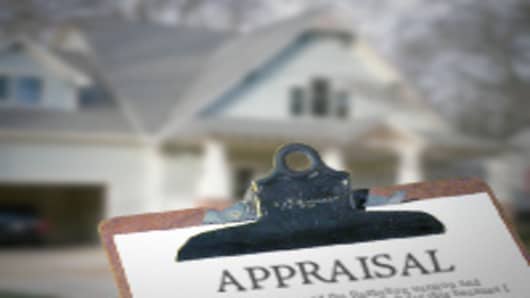If you want to buy a home or refinance your mortgage, you might not be all that concerned about how your lender selects the appraiser who figures out how much your home is worth. But new rules intended to reduce appraisal fraud and curtail undue pressure on appraisers could have some dramatic repercussions for homebuyers and homeowners.
Proponents say the new rules will result in more reliable appraisals, less fraud, lower costs and minimal disruption. But critics expect less accurate appraisals, delays in loan processing, higher costs and general misery for all concerned.
At issue is the "Home Valuation Code of Conduct," or HVCC, a four-page document that outlines appraisal-related practices to which lenders must adhere with respect to so-called "conventional" or "conforming" loans that they want to sell to Fannie Mae or Freddie Mac. The code appears set to become effective May 1.
Much of the controversy concerns how the code will affect mortgage brokers and appraisers. Both of these groups have been up in arms because they believe the new rules will curtail their business opportunities and income. But these groups also have suggested that the new rules could result in less accurate appraisals or higher appraisal fees, two outcomes that should raise an alarm for homebuyers and homeowners.
_____________________________________
More House Help From Bankrate.com:
_____________________________________
1. Will the new rules take the pressure off appraisers?
No one disputes the axioms that property appraisals should be accurate, fair and impartial and that "inflated appraisals put both the lender and borrower in jeopardy," says Bill Garber, director of government and external relations at the Appraisal Institute, a Chicago-based professional organization for appraisers. But there's still considerable disagreement over whether the new rules will put an end to the pressure, coercion and even threats appraisers have faced to a greater or lesser degree since appraisals were invented.
The new code of conduct requires that lenders order appraisals either directly from appraisers, most of whom are independent contractors, or through appraisal management companies, which act as a sort of outsourced appraisal department for the lender. This requirement means mortgage brokers will no longer be able to order appraisals for loans that will be sold to Fannie Mae or Freddie Mac. Garber says there is "a good case to be made" that mortgage brokers shouldn't order appraisals because they earn their commission only if the appraiser's opinion of value is high enough for the lender to approve the loan.
While that case may indeed be solid, an argument also can be made that "all parties to the loan transaction have some incentive to obtain an appraisal at the highest possible value," as the Federal Trade Commission stated in an April 30 comment letter to Freddie Mac about the code. Mortgage brokers want to earn that commission. Borrowers want to be able to buy the home or refinance a mortgage. Lenders want to be sure the property's value justifies the loan amount, but they also want the loan to close so they can collect the fees.
2. Will the new rules hinder mortgage shopping?
A major concern is whether the code's ban on broker-ordered appraisals in connection with certain loans will impede borrowers' ability to shop around for a loan.
Garber says borrowers will still be able to shop around with the aid of a mortgage broker because an appraisal ordered by one lender "can be utilized by other lenders with proper procedures."
Mortgage brokers say otherwise. In an April 30 comment letter addressed to Fannie Mae, George H. Hanzimanolis, 2007-08 president of the 25,000-member National Association of Mortgage Brokers, or NAMB, in McLean, Va., argued that the code would "impede consumers' ability to comparison shop" for loan products. He also said the code would have an "adverse impact" on the mortgage market that would result in "fewer choices and increased costs for consumers."


